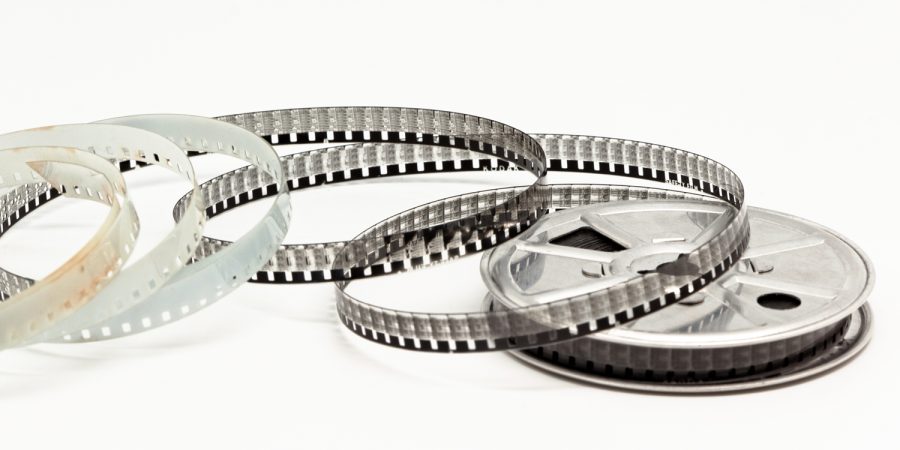Opinion | I Watched 122 Movies in 2019
January 5, 2020
If Pulitzer Prize-winning film critic Roger Ebert said, “Film can take us where we cannot go,” then I have been all over the world in the past year.
I was a love-sick nightclub owner in “Casablanca” and a hard-nosed detective in “Chinatown.” I was a “Rebel Without a Cause” in Los Angeles and a deranged “Taxi Driver” in New York City. “Once Upon a Time in America,” I was a merciless Jewish gangster, and “Once Upon a Time … in Hollywood,” I was a fading TV cowboy.
And I have gone to the moon a few times, too.
It was a New Year’s resolution of mine to watch as many movies as time would allow me and it turned out I had more than I thought — enough to watch 122 movies.
It probably sounds ridiculous, and you would be in good company with my parents for thinking in such a way — though I suspect a lot of the animosity stems from my relentless Al Pacino impression whose excellence they refuse to acknowledge — but I wanted to undergo a year-long journey of purpose and meaning that I couldn’t find in losing weight, becoming more environmentally conscious or reading the Bible in its entirety — I’m a bad Jew, I didn’t even make it through Genesis.
For me, this journey of sorts was not a way to challenge myself, but a means of setting aside time to focus on something I am passionate about, and that is not something that should be exclusive to cinema.
You know you have signed up for a life of pretentiousness when you become a cinephile — the word itself sounds exclusive and pompous. It describes a person who is passionate about film, and it’s the kind of word the so-called profound intellectual Holden Caulfield would call himself in “The Catcher in the Rye.” But that is a book, and quite famously, never-to-be-a-movie per J.D. Salinger’s refusal to sell the movie rights and apparent dying wish, so I am not sure why I brought that up. Maybe it is because I am a cinephile, and I like to say things that sound smart.
How do you watch 122 movies in a single year? It’s easy and only takes two steps. First, you must watch an average of about three movies a week and then you must become a really good liar.
You tell your friends you are sick and cannot hangout tonight, because really you will be in bed with a bowl of popcorn watching Martin Sheen’s face rise from the swamp in the Vietnam War epic, “Apocalypse Now.”
You tell your parents that you are looking for a job, but really you are at Rowhouse Theater in Lawrenceville watching Alfred Hitchcock’s “North by Northwest.”
You email your professor apologizing for waking up late and missing class because you were writing an essay all night for another class, but really you couldn’t remove yourself from the comedic genius of “Borat.”
Hollywood is becoming increasingly dull and unoriginal. The past decade is littered with “nostalgia porn” — pointless sequels and live-action remakes of animated films for a sentimental audience made by studios with every intention of making a quick buck and not creating something new.
And as much as I appreciate the streaming service era for offering film buffs like myself access to a collection of critically acclaimed movies all on one platform, Netflix and company are destroying the movie-going experience. Movies belong on the big screen, and because we are at a cultural crossroads, it might not be long before theaters fade into obscurity and are treated the way record players are today — a nostalgic trend.
I am a snob. When legendary director Martin Scorsese of “Goodfellas” and “Raging Bull” fame denounced Marvel movies as “not cinema” and other franchise pieces of garbage in an interview with Empire last November, I rejoiced.
“Honestly, the closest I can think of them [Marvel movies], as well made as they are, with actors doing the best they can under the circumstances, is theme parks,” Scorsese said. “It isn’t the cinema of human beings trying to convey emotional, psychological experiences to another human being.”
How many times can you go to the theater to watch the down-and-out guy who acquires superhuman powers only to be faced with more “unexpected” obstacles before beating the bad guy in the end?
My comic book brethren, quit kidding yourselves. It’s the same story, just a different costume.
I, on the other hand, love the classics. I love the black-and-white film noirs from the ’40s and ’50s like “The Big Sleep” and “Sunset Boulevard” with the heavy cigarette smoke and cocktail drinking, the forbidden romance and the unsolvable murder. I love when filmmakers push boundaries and challenge the audience in films like “Midnight Cowboy” and “A Clockwork Orange.” And I love “The Godfather” — its legacy speaks for itself.
Selecting which films to watch was just as entertaining as watching them. Usually it was as simple as looking up lists of what are regarded as the best films ever made, but after I exhausted my way through the majority of the suggestions from the International Movie Database and American Film Institute, I resorted to other methods.
After having watched almost all of Stanley Kubrick’s works, I became curious as to what movies he watched, which movies inspired him. And I didn’t stop with Kubrick. I researched all my favorite filmmakers’ favorite films.
Woody Allen listed Federico Fellini’s Italian surrealist masterpiece, “8 ½,” and Orson Welles’ “Citizen Kane” which is always in the ‘best movie ever’ debate. Quentin Tarantino listed Sergio Leone’s spaghetti western epic, “The Good, the Bad and the Ugly” and Howard Hawks classic screwball comedy, “His Girl Friday.”
I would watch any movie that got the stamp of approval from movie critics and it could have been anything from silent films to biblical epic. And every time I watched a movie I logged it in a Google doc along with my personal rating — it’s a bit obsessive, but I couldn’t have done it any other way.
My favorite moments of the year were in some way or another a result of movies. My friends and I bonded over a love for the aesthetic violence and rapid-fire dialogue of Tarantino flicks like “Inglourious Basterds,” and “Kill Bill.” We impersonated our favorite — and least favorite — actors like Robert De Niro and Jack Nicholson. We argued over whether or not Star Wars is overrated. It is.
Movies do, in fact, take us places we cannot go, and teach us not just about the world, but about the people we watch them with. Movies spark arguments about our place in the world and they hone in on our rawest of emotions. Cinema is the most effective artform that can do such a thing and if you don’t feel that way, it is because you aren’t watching the right movies.
When I transferred to the University of Pittsburgh this past year, the closest friends I have made can attest to my obsession for movies in that one of the first things they remember me saying is “Wait, you have never seen ‘Pulp Fiction’?”
And now they have. Because of me.
Aidan is a junior majoring in English Writing with a certificate in Jewish Studies. Write to Aidan @als473@pitt.edu



